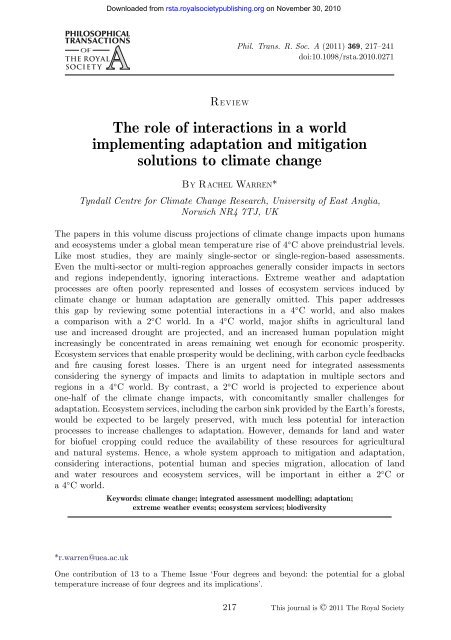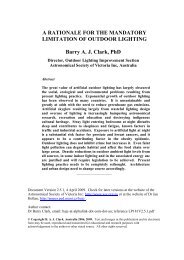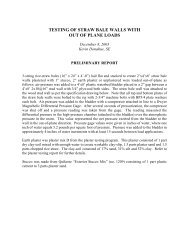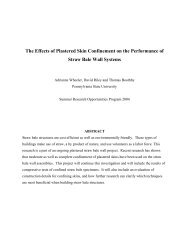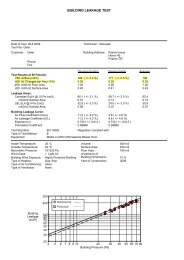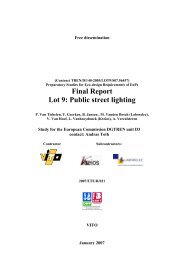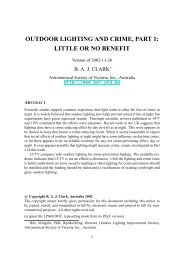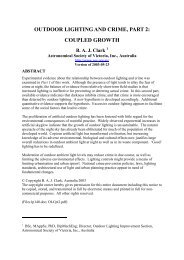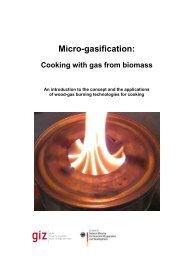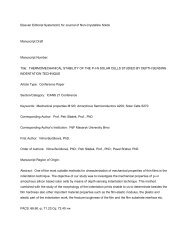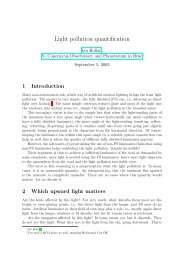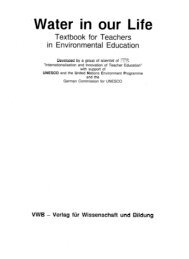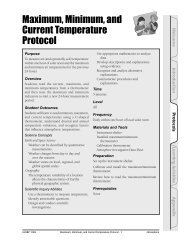Four degrees and beyond: the potential for a global ... - Amper
Four degrees and beyond: the potential for a global ... - Amper
Four degrees and beyond: the potential for a global ... - Amper
Create successful ePaper yourself
Turn your PDF publications into a flip-book with our unique Google optimized e-Paper software.
REVIEW<br />
Phil. Trans. R. Soc. A (2011) 369, 217–241<br />
doi:10.1098/rsta.2010.0271<br />
The role of interactions in a world<br />
implementing adaptation <strong>and</strong> mitigation<br />
solutions to climate change<br />
BY RACHEL WARREN*<br />
Tyndall Centre <strong>for</strong> Climate Change Research, University of East Anglia,<br />
Norwich NR4 7TJ, UK<br />
The papers in this volume discuss projections of climate change impacts upon humans<br />
<strong>and</strong> ecosystems under a <strong>global</strong> mean temperature rise of 4◦C above preindustrial levels.<br />
Like most studies, <strong>the</strong>y are mainly single-sector or single-region-based assessments.<br />
Even <strong>the</strong> multi-sector or multi-region approaches generally consider impacts in sectors<br />
<strong>and</strong> regions independently, ignoring interactions. Extreme wea<strong>the</strong>r <strong>and</strong> adaptation<br />
processes are often poorly represented <strong>and</strong> losses of ecosystem services induced by<br />
climate change or human adaptation are generally omitted. This paper addresses<br />
this gap by reviewing some <strong>potential</strong> interactions in a 4◦C world, <strong>and</strong> also makes<br />
a comparison with a 2◦C world. In a 4◦C world, major shifts in agricultural l<strong>and</strong><br />
use <strong>and</strong> increased drought are projected, <strong>and</strong> an increased human population might<br />
increasingly be concentrated in areas remaining wet enough <strong>for</strong> economic prosperity.<br />
Ecosystem services that enable prosperity would be declining, with carbon cycle feedbacks<br />
<strong>and</strong> fire causing <strong>for</strong>est losses. There is an urgent need <strong>for</strong> integrated assessments<br />
considering <strong>the</strong> synergy of impacts <strong>and</strong> limits to adaptation in multiple sectors <strong>and</strong><br />
regions in a 4◦C world. By contrast, a 2◦C world is projected to experience about<br />
one-half of <strong>the</strong> climate change impacts, with concomitantly smaller challenges <strong>for</strong><br />
adaptation. Ecosystem services, including <strong>the</strong> carbon sink provided by <strong>the</strong> Earth’s <strong>for</strong>ests,<br />
would be expected to be largely preserved, with much less <strong>potential</strong> <strong>for</strong> interaction<br />
processes to increase challenges to adaptation. However, dem<strong>and</strong>s <strong>for</strong> l<strong>and</strong> <strong>and</strong> water<br />
<strong>for</strong> biofuel cropping could reduce <strong>the</strong> availability of <strong>the</strong>se resources <strong>for</strong> agricultural<br />
<strong>and</strong> natural systems. Hence, a whole system approach to mitigation <strong>and</strong> adaptation,<br />
considering interactions, <strong>potential</strong> human <strong>and</strong> species migration, allocation of l<strong>and</strong><br />
<strong>and</strong> water resources <strong>and</strong> ecosystem services, will be important in ei<strong>the</strong>r a 2◦C or<br />
a4◦C world.<br />
Keywords: climate change; integrated assessment modelling; adaptation;<br />
extreme wea<strong>the</strong>r events; ecosystem services; biodiversity<br />
*r.warren@uea.ac.uk<br />
Downloaded from<br />
rsta.royalsocietypublishing.org on November 30, 2010<br />
One contribution of 13 to a Theme Issue ‘<strong>Four</strong> <strong>degrees</strong> <strong>and</strong> <strong>beyond</strong>: <strong>the</strong> <strong>potential</strong> <strong>for</strong> a <strong>global</strong><br />
temperature increase of four <strong>degrees</strong> <strong>and</strong> its implications’.<br />
217<br />
This journal is © 2011 The Royal Society


